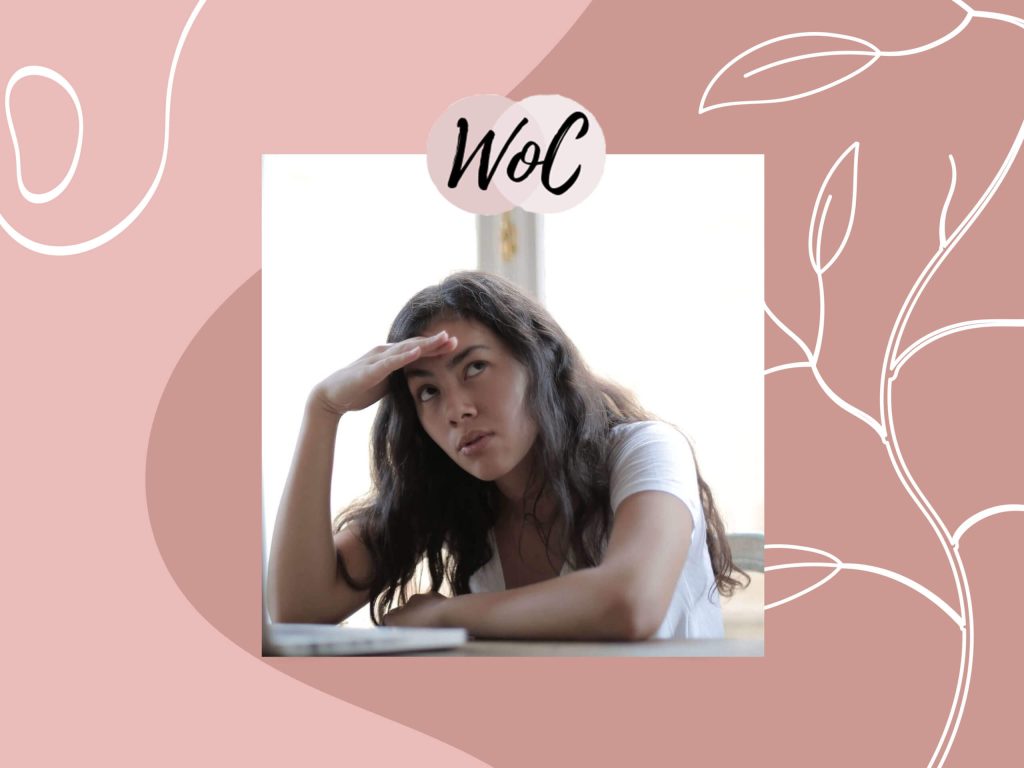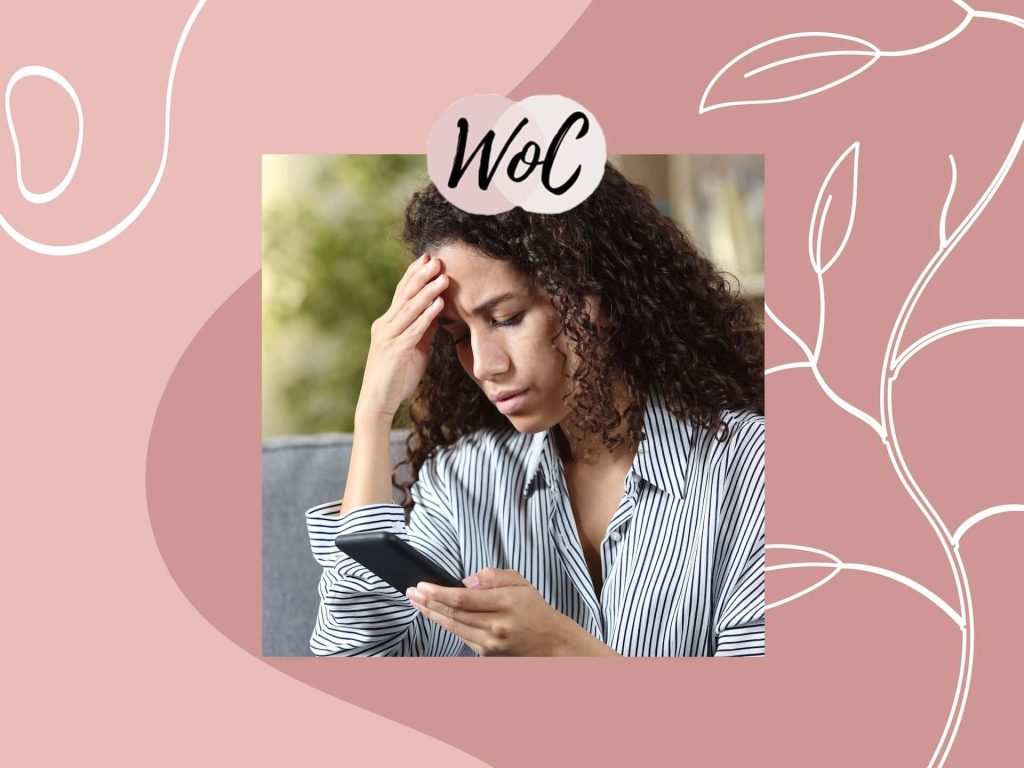To this day, black women and depression have been a topic that has been shoved to the side and not considered much of a health risk. Much to our misfortune, one of the leading health issues in the U.S. is mental illness, especially within the African-American population; more specifically major depressive disorder (MDD). Though there has been an uprise of awareness, there are still major hurdles we need to face.
According to data collected from the Mental Health of America, in the past year, 16% of African-Americans reported having a psychiatric disorder. The data also showed that African-Americans are more likely to have feelings of sadness, worthlessness, and hopelessness than white Americans. That’s well over 7 million Americans who are faced with psychiatric symptoms and conditions.
Societal Impact on Mental Health
It’s a well-known fact that in the entirety of the existence of the U.S., African-Americans have been heavily impacted by unfair laws, policies, and practices. Though times have changed, African-Americans are still suffering from these laws and policies. There are still a lot of aspects about the black experience that are damaging mentally and physically. No person understands this more than the average African-American woman. They are among the most discriminated groups in the U.S. and are often forced to handle and navigate harsh and hostile situations and environments. Racism, sexism, colorism, and even xenophobia are all causes of stress and MDD, and this has been the truth for centuries.
Cause and Effect: Race, Gender, and Mental Health Issues
Within the last 4 years, we’ve witnessed racial tensions and gender-based violence reach new heights. Although there has been a vigilant effort to battle against these injustices by a myriad of groups and organizations, the impact and damage are irreversible. With the hundreds of cases, from the murder of Breonna Taylor to the sexual assault on African-American women by police officers, so many are faced with handling mental instability. Simply being cognizant of own race and gender is enough to cause a heavy amount of pressure and stress, but to know is only a part of the experience as an African-American woman, and many suffer in silence.
The Belief and Attitude Toward Black Women and Depression
A major detriment to psychological wellness in most black communities is the belief that psychiatric disorders don’t happen. Many of us have grown up with this idea that depressive disorder isn’t really a thing, and at most you were just going through some “ups and downs.” Although there is plenty of research and data available on the internet, many still hold tight to the idea that this phenomenon doesn’t happen in our community.
When it comes to depression in African-American females, this is especially dangerous because, from a young age, girls are often ignored or told to be strong in situations where they should be allowed to feel and sort through trauma and emotions. If there are any signs or symptoms, they are easily ignored and forgotten. This attitude translates to other races into a belief that every African-American woman is always “strong” and “stoic” without any real investigation into psychological wellness among African-Americans.
Denial of Depression and Psychiatric Illness Among African-Americans
How many times have you heard the phrases “it’s just a season” or “you need to get over it” or “suck it up?” As we’ve learned within the past decade, clinical depression is a psychiatric condition that can be caused by a multitude of factors. It develops over time and can strike without warning at any moment. Given factors like gender inequality, racism, dating, and pressures from society that affect African-American women on a day-to-day basis, it’s almost an inevitability.
None of the listed factors are new to African-Americans, so why is it that the majority of us are still in denial about the existence of psychiatric illness and depressive disorder? It could stem from our childhood when our parents had to raise us to be strong and defensive. It could also be because the majority of coverage and research has always leaned toward white Americans. It could also be a general mistrust of medical practice from years of heinous experiments done on African-Americans for generations. Another factor could be that there isn’t much forgiveness or understanding for cases of suicide and MDD among African-Americans.
Lack of Resources and Support
What’s most alarming about MDD among minority communities is the lack of support and resources. Due to the stigma surrounding psychiatric disorders, many African-American women don’t actively seek any treatment for symptoms. Instead of therapy, self-care, or anti-depressants, they turn to poor coping habits and mechanisms. There is also a huge lack of representation within the field of study for mental well-being, so it’s much harder to connect to therapists, and doctors, or to even find WOC therapists.
The Trouble of Seeking Treatment
As mentioned before, African-Americans have problems when it comes to seeking help for MDD or any similar condition. African-American depression statistics collected from the CDC reported that African-American women are 4% more likely to have symptoms of MDD than whites and are less likely to report it or seek treatment. One of the major problems is lack of representation; because there are few African-American counselors, it’s hard for African-American women to build trust in therapy care. Another issue is the mistrust of antidepressants and similar medications.
Another major issue is availability by proximity. African-Americans who live below the poverty line are twice as likely to have signs of psychiatric conditions and don’t have the financial backing to allow them to seek professional treatment. Lastly, there is an overall lack of interest in doing studies and research into any minority community and no efforts being made to build establishments or a solid foundation for mental health.
Turning to Destructive Coping Mechanisms
Because of the lack of resources available, it’s common to turn to destructive coping mechanisms. Data collected from Mental Health of America shows that in recent years, the number of attempted suicide by people of color has increased. It also showed that African-American women with depression are more likely to engage in smoking, alcohol, illicit drugs, and pain killers as a way of coping rather than seek treatment. These mechanisms turn to addictions and worsen the effects of MDD greatly.
The Lasting Effects of Assault Against Women
A very scary, but true experience for WOC is sexual and violent assault. It starts with the hyper-sexualization that, in America, dates back to the early 1400s. This phenomenon has evolved into tiny nuances and microaggressions that we normally hear and see.
Along with hypersexualization comes abuse. Many survivors of sexual assault have long-term psychiatric issues like MDD and PTSD. Unfortunately, there is very little care offered to those who are afflicted. What’s even worse is that a large majority of cases go unreported or ignored.
PTSD and Clinical Depression Among Black Women
Post Traumatic Stress Disorder (PTSD) and MDD are relatively similar conditions, but it is important to understand the differences between the two. MDD is a condition where one will have overwhelming feelings of sadness, hopelessness, and worthlessness which can affect your daily life in many ways. It can cause insomnia, memory loss, unhealthy weight loss, an increase in heart problems, weakened immune system, dietary issues, and so on. It can happen to anyone and episodes can strike at any moment without warning.
PTSD is a condition that develops from a traumatic experience and can cause chronic pain and fatigue, panic attacks, social isolation, heart disease, social anxiety, eating disorders, and many other effects. Unlike MDD, PTSD episodes are triggered by a memory or feeling of a traumatic event or experience, but it can still happen at any point in time.
Due to the harsh reality that women of color face on a day-to-day basis, having MDD and PTSD is far more likely to happen than for male counterparts. Yet, black women and mental health remain a widely ignored issue.
Debunking the Myths of Depression
Now that we’re clear on what MDD is and how it affects people, it’s only fair to continue the effort of debunking myths and misconceptions about African-American women and depression. It’s important to open the doorway of information and make our community more aware of psychiatric conditions. Without clarity, we’re doomed to the same cycles and habits that keep us from seeking treatment and healing.
More Than “Feeling Down”
How often have we heard the old saying Ï’m just feeling a bit down”? It’s a saying that often only brushes over a much deeper problem and doesn’t foster any type of insight into what the real issue is. What’s important to understand is that clinical depression is much more than our outside experiences. It’s a combination of chemical imbalances as well as the struggles in our current world. These issues shouldn’t be ignored, but talked about, treated, and managed.
Medication is for “Crazy” or “Weak” People
A major misconception in black culture is that taking medication for psychiatric conditions is a “white” thing or for “crazy” or “weak” people. This stigma has kept many African-Americans from seeking help for their MDD and it stems from misinformation and mistrust in medical practice. The properties of the medication, when prescribed by a professional and used responsibly, are simply to balance the chemicals in your brain. They help with sleeping, improve your mood, appetite, and concentration. There are also other forms of care aside from just taking medication as well. For example, even some basic self-care tips can go a long way, as well as learning how to deal with stress in a healthy way,
You Can’t Just “Get Over It”
Being depressed is not one of those things where you can just wake up one day and be done with it. It’s life long condition that needs to be managed. It can happen at any point in your life and affect you in ways that a good night’s sleep can’t take care of. It’s important to understand that when you show signs and symptoms of MDD, you should consider seeking help and guidance from a professional. Scheduling your first therapy appointment is never easy, but it is an important step in the right direction. Surround yourself with people who are supportive of your decision to seek help and can be touchstones in your life to keep you focused.
Seeking Help and Resources
Like the adage says “simply knowing is half of the battle.” The next step in managing MDD is to gain the courage to seek help. Technology has made it possible to find a center near you and can help you find black therapists and resources for women of color. If you or anyone you know is battling with any psychiatric condition, it’s never too late or too early to find therapy services and treatment that will help you manage your anxiety or any other conditions you may have.


